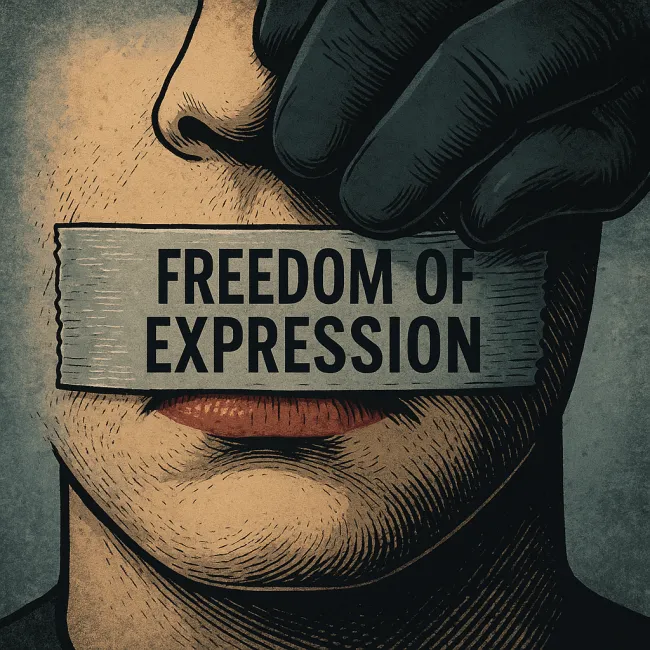
George Orwell:
“If liberty means anything at all, it means the right to tell people what they do not want to hear.”
Voltaire (attributed):
“I disapprove of what you say, but I will defend to the death your right to say it.”
(Note: this quote is widely attributed to Voltaire, though it was likely coined by Evelyn Beatrice Hall summarising his views.)
Crowded hotels, frustrated communities, online anger and street protests all share one root. Migration policy feels broken, yet ministers respond not by fixing policy but by drafting a new police unit tasked with watching social media for anti-migrant sentiment. With burglary investigations shelved and knife crime still on the rise, our already scarce officers are being redeployed to patrol keyboards rather than high streets. An anxious government is choosing to watch and silence opinions instead of addressing causes.
British law already draws a clear bright line between speech that is lawful and speech that is criminal. Only words that cross into direct incitement or credible threat are outlawed. The Court of Appeal confirmed in Miller v College of Policing that recording non crime hate incidents without evidence of wrongdoing chills lawful expression. Scottow v CPS reminded prosecutors that the right to offend and even to abuse, in robust debate, is part of that liberty. In DPP v Manchester City Magistrates the divisional court upheld the acquittal of protesters who shouted "Tory scum", recognising the protection that political dissent enjoys. Parliament itself enjoys absolute immunity for speech, and the common law extends heightened safeguards to journalists, bloggers and outspoken citizens engaged in public debate.
Against this legal backdrop the proposed social media surveillance squad looks less like a shield against violence and more like a sensor placed on the national tongue fresh out of a dystopian fiction novel. It doesn't take long looking online to see comparisons being made between the UK's new 'elite social media monitoring police squad' and the authoritarian "Thought Police". Ministers claim they want early intelligence to prevent disorder. Yet the same Home Office has championed the Online Safety Act, where sweeping powers and private censorship have already driven a surge in virtual private network sales as citizens route around state approved content filters. Sixteen year olds may soon receive the vote, but will need a passport scan to read half the arguments that should inform that vote. That is not empowerment. That is infantilisation.
There is a wider democratic cost. Every call out, every knock on a door, every visit to a station for a voluntary interview over a strongly worded post sends a signal to thousands more who watch and decide it is safer to stay silent. The courts can correct abuses after the fact, but justice won years later helps neither the lost job nor the chilled debate of today. Liberty preserved only for those who can afford litigation is no liberty at all.
A free country polices streets, not thoughts. It meets protest with dialogue, not data harvesting. It tackles illegal migration through firm borders and efficient processing, not through the quiet intimidation of online critics. If ministers want to calm unrest they should start by addressing the policy failures that fuel it, then restore visible frontline policing that deters real crime. Swapping bobbies on the beat for detectives on X is a trade that serves no community.
Britain does not need a new speech unit. It needs a renewed commitment to the principle that the answer to unwelcome ideas is better ideas voiced in the open. Our tradition of liberty demands nothing less and will tolerate nothing less.